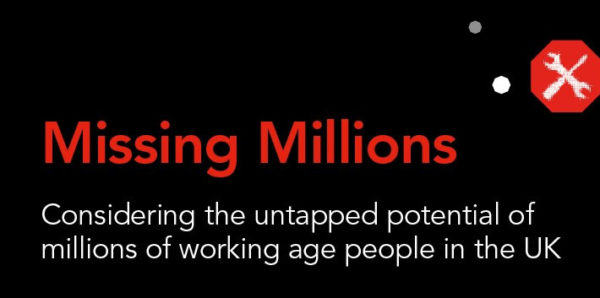City & Guilds have released their report into skills, productivity and training in the UK stating that the UK is squandering the potential of millions of workers. Read the full report here.
Research findings
- only 33% of working age people in the UK feel positive about their future career prospects
- only half (53%) have received workplace training in the last three years
- 34% of respondents have either not received workplace training in the last five years or have never had any such training – equating to 17.8 million people with outdated skills
- 31.3 million people (60% of respondents) feel their skills are underutilised at least 50% of the time
The report is based on findings from Emsi and a poll of 5,000 working age people. The report raises real concerns about the productivity of the UK workforce and how we can support the needs and demands of the future workforce set to change so rapidly over the next decade.
Kirstie Donnelly, Interim CEO at City & Guilds Group, commented:
“Today we are fortunate that unemployment sits at its lowest level since 1975, but this masks the fact that many people in the country are in fact underemployed and could contribute far more to society if given the opportunity. By unlocking more people’s full potential, we can both increase opportunities for social mobility and help to drive up productivity.
“Over the last decade, we have witnessed continued cuts to adult education funding, which has meant that certain groups of people have effectively been ‘left behind’. As the impact of Artificial Intelligence and the fourth industrial revolution continues to totally reshape the labour market, we need to see urgent action from the Government to reverse the decline of the lifelong learning sector – ensuring people in all areas have access to critical skills development and employers have access to the talent they so desperately need.”
Compounding disadvantage
The report found stark disparities in what people receive. those from lower socio-economic groups were
- much less likely to have received training in the last five years (44% vs 68%)
- were less satisfied with their career prospects (22% vs 39%) than those from higher socio-economic groups
Those living in the North East of England faced a significant disadvantage in access to training and opportunities for progression when compared with other regions. Only 21% of people in the North East felt positive about the jobs market in their local area, compared to 45% in London;
Those working part-time – significantly more women than men – were also less likely to have received training in the last five years than those working full-time (61% vs 72%). Part-time workers were additionally far less likely to believe there was opportunity to progress than their full-time counterparts (22% vs 36%);
It is important to note that people highly value the training they do receive – 77% of those who had received workplace training stated that it had enabled them to be more effective at their job.
Recommendations:
- Employers need to invest in skills development for people at all ages and levels of their career. They also need to get better at recognising and utilising people’s full skillsets.
- Individuals need to start looking for more opportunities to up-skill themselves outside of the workplace or put themselves forward for training at work, as well as showcasing their full range of skills to employers, both current and potential.
- Government and policy makers need to urgently review adult education and create a system that encourages lifelong learning, retraining and re-skilling. They need to provide better careers guidance and advice to people at all stages of their career.












